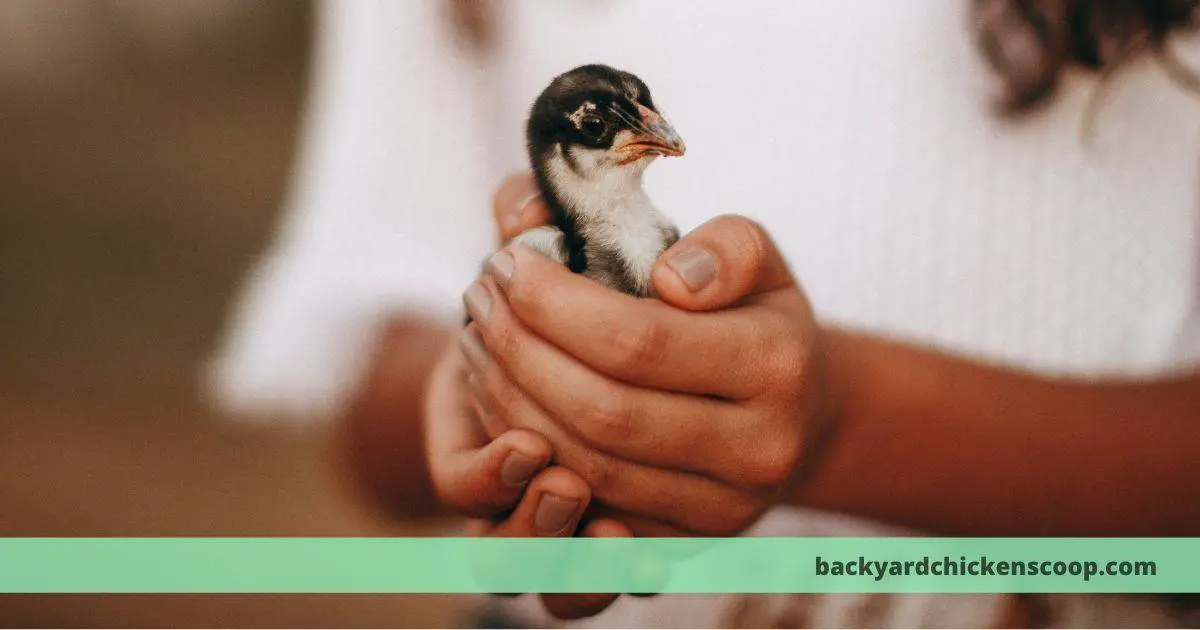Keeping chickens as pets can be a great addition to your life and family, and like with all animals, it is essential that you know how to care for them correctly in all aspects. For some, a big part of raising chickens can be raising their chicks also, but how involved should you be when it comes time for a chick to hatch?
The idea of helping a chick hatch is often a topic of debate and controversy, with some saying that nature must be left to run its course, and others saying that you have an obligation to help. With so many people having such varying degrees of opinions, how do you know what is the right thing to do? Read on for more information on how you handle a chick hatching when the time comes.
Expert Insight from My Vet
You should generally not help a chick hatch, as it can harm the chick and interfere with its natural development process.
Firstly, the process of breaking out of the egg is crucial for the chick’s development, helping to build muscle strength and coordination. Secondly, premature intervention can lead to injury, as the chick’s blood vessels are connected to the egg membrane.
Additionally, hatching is a natural selection process, indicating the chick’s health and viability. Interfering can also disrupt the crucial absorption of the yolk sac, which provides essential nutrients.
Also, if a chick is too weak to break out of its shell it generally does not help it if you help it hatch. It will still be weak and may not live anyway.
Therefore, despite good intentions, aiding in hatching can do more harm than good.
Can You Help a Chicken Hatch?
Overall, the answer to this question is no, you should not help a chick hatch. However, even though it is a no, it still isn’t always so black and white. There are many things that can happen during the hatching process, and there may be the rare occasion where you should step in, in order to give your chick a chance to survive, but helping the chick hatch should generally not be your first response. You see, the people who say that you must let nature take its course are for the most part correct.
You should not help a chick hatch. By doing so you could cause problems for a chick that was otherwise healthy. It could weaken the legs, as you have done the hard work of breaking the shell. You could break the blood vessels in the shell that haven’t had time to shut down. If you break the shell before the chick is ready, the chick will most likely die. If it can’t by itself it’s most likely because it’s weak or unwell. Due to the laws of nature, that chick couldn’t get out by itself because it wasn’t strong or healthy and just wasn’t meant to survive.
A chick will hatch when it is ready, and if it is strong enough it shouldn’t have any big problems when it comes to pipping and breaking through its shell. There are a couple of mistakes that people sometimes make when it comes to the hatching stage that you should be aware of so you don’t make the same mistakes as well.
1) Starting the Process for the Chick
As a general rule, a chick will be ready to hatch after twenty-one days, but this doesn’t mean that if by the end of the twenty-first day, the process hasn’t started you should intervene and break the egg. There are a couple of factors in play that can sometimes mean the chick won’t be ready for another couple of days, so whatever you don’t break the shell thinking you are helping. If you break the shell before the chick is ready, the chick will unfortunately die.
2) Breaking the Shell After the Pipping Has Started
The whole procedure of pipping until hatching can take up to twenty-four hours. So, whatever you do, don’t help the chick break through their shell either through impatience or a misplaced desire to help. The process just takes a long time and for the most part, the chick will complete all stages in its own time.
If you start breaking the shell unnecessarily thinking the chick should be out in a few hours rather than twenty-four, this is extremely counterproductive. By doing so you could end up causing problems for a chick that was otherwise healthy and following nature.
3) Helping a Chick Who Will Suffer in the Long Term
Okay, while this is not necessarily a mistake, it is something to be aware of. If a chick is struggling to the point where the only way it can get out is with help, it is most likely because the chick is weak or unwell.
If you decide to help, and the chick survives, you will almost certainly have a chick that needs medical help or aid for the rest of its life, this is more work and stress for you and a poor quality of life for the chick. Due to the laws of nature, that chick couldn’t get out by itself because it wasn’t strong or healthy and just wasn’t meant to survive.
Get Chick Hatching Success
Click to See Our Complete Checklist and Guide to Getting Strong and Healthy Chicks
… avoid the beginner mistakes?
Why Is It Bad to Help a Chick Hatch?
You have no idea what is happening inside the shell, so it is a huge risk to help the chick and potentially cause more harm than good. You may be staring at the chick thinking it is struggling to get out when in fact it is completely normal and there is no cause for concern.
Often, despite wanting to help, we do have to let nature lead the way and allow the chick time to get out of the shell on their own. If you assist the chick in hatching you can cause it to have weakened legs, because you have done the hard work of breaking the shell. Or you could break the blood vessels in the shell that haven’t had time to shut down, and this will cause the chick to bleed to death.
The Comprehensive Guide to Respiratory Disease in Chickens
Explore our essential guide on respiratory diseases in pets. Arm yourself with the knowledge to keep your feathered friends healthy and breathing easy
What Do You Do if a Chick is Stuck in an Egg?
Okay, so there may be the odd occasion where the chick is genuinely stuck in the shell, now what? Is it now the right time to help? Do the benefits potentially outweigh the risks?
If you are completely certain that the chick is stuck in the egg, then you should consider gently helping. The dried membrane is the most common cause of a chick being stuck in the egg. The easiest and safest ways to help in this situation are either:
- Increase the humidity in the incubator to around 65-70%
- Dab the membrane gently with oil – coconut oil is a good option, do not use water as you run the risk of the chick drowning
Even in this case, the intervention should be minimal, and the focus should be on increasing the moisture of the membrane so that the chick can continue to break the shell.
The hatching process is not always smooth sailing, and it can be extremely difficult watching and waiting while wanting to do anything possible to help.
Unfortunately, there will be times when the chick just isn’t healthy enough to break the shell or survive the hatching process, but since you cannot know for certain that this is the case, you are best to always opt out of helping.
Just never forget that if you decide to step in, you are now the one who could be putting the chick’s life in danger, so it is wise to be patient and let nature run its course.

Soren, a lifelong chicken enthusiast, shares his passion and expertise through BackyardChickenScoop.com. Raising chickens since childhood, he now teaches his two sons about care, life, and food origins.
Read more about us here…

